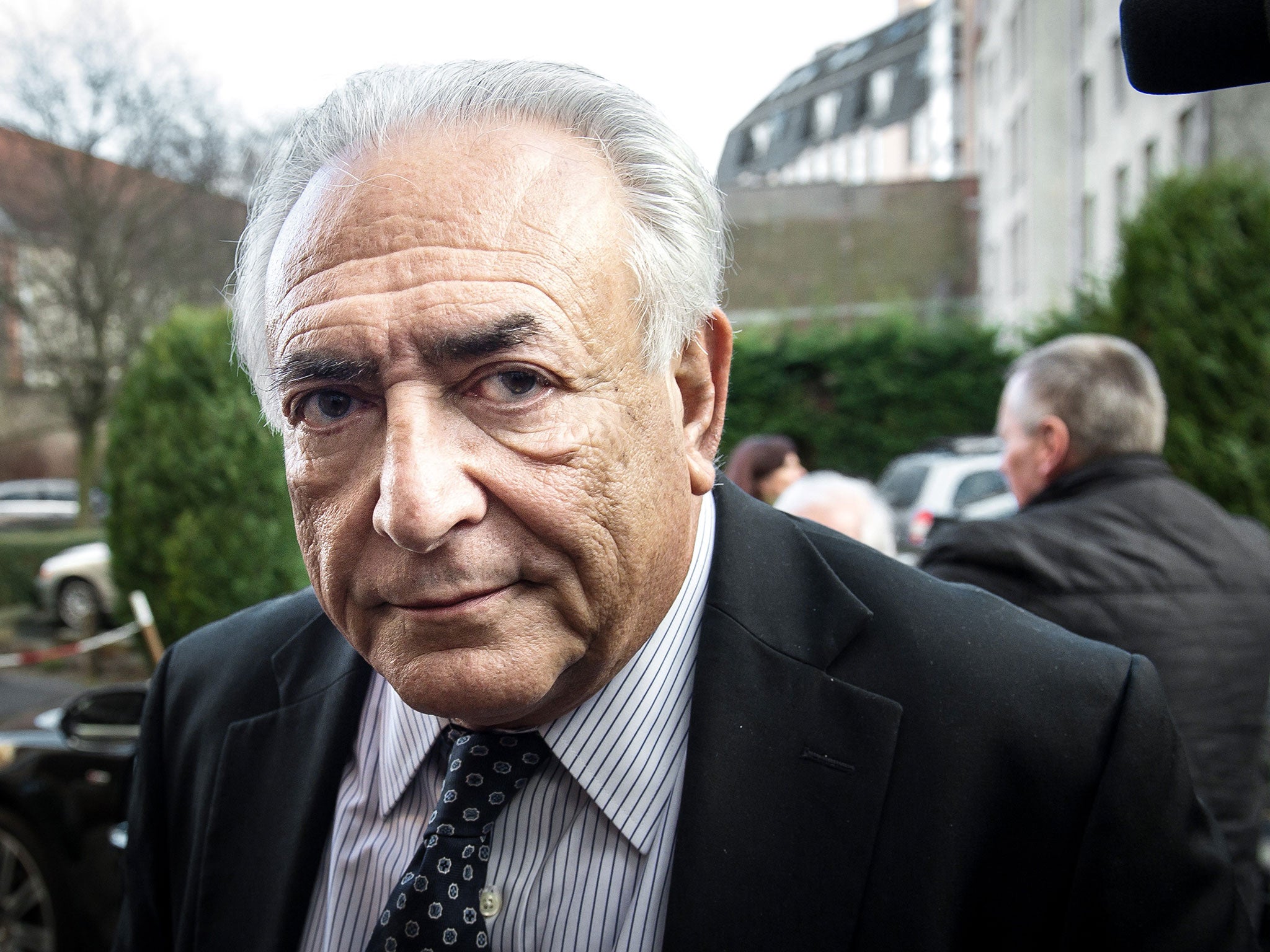Dominique Strauss-Kahn acquitted: Former IMF chief found not guilty of 'aggravated pimping'
The verdict brings a 4-year-long legal saga to a close

THE former IMF chief Dominique Strauss-Kahn was comprehensively acquitted of “aggravated pimping” today in a blistering judgement which turned into a trial of his accusers and the French judicial system.
In a delayed ruled after a three week court hearing in Lille in February, a panel of four judges threw out “pimping” charges against Mr Strauss-Kahn and 11 other people.
In their 147 page ruling, which took two hours to read, the judges made it clear that they thought that the case should never have reached court. They implied that the investigating magistrates – who pursued the trial against the wishes of the state prosecutors – had been influenced by the celebrity of Mr Strauss-Kahn.
His acquittal brings to an end four years of accusations of sexual misconduct against the former French finance minister, beginning with his arrest for alleged attempted rape in New York in May 2011. None of the allegations have led to convictions. Mr Strauss-Kahn did, however, settle out of court a civil claim by the New York chambermaid, Nafissatou Diallo.
Dominique Strauss-Kahn: A timeline
Show all 11Mr Strauss-Kahn, 66, is unlikely to resume his political career. He was front runner to be the next French president at the time of his arrest in New York but his reputation has since been sullied by his own admission to a taste for “rough” and “libertine” sex.
Before he left the court, DSK was heard to mutter: "All that for that...What a disaster."
In the Lille case, Mr Strauss-Kahn and others were accused of “aggravated pimping” for allegedly organising sex parties with prostitutes in France, Belgium and the United States in the period 2008-11.
Under French law anyone who helps to organise acts of prostitution can be considered guilty of pimping, even if they take no financial benefit. The examining magistrates who investigated the case believed that Mr Strauss-Kahn was the “instigator” and an organiser of these orgies-sans-frontières.
The judges ruled that there was no evidence that DSK knew that women at the parties were prostitutes and no evidence that he instigated or organised the events. At most, they said, he was a “client, which is not a crime under French law”.
The trial heard evidence of allegedly brutal or insensitive behaviour by DSK towards two of the women at the parties. Giving evidence, he said that he took pleasure in “libertinage” or sexual “free-for-alls”. He admitted that his sexual behaviour towards women was sometimes “rougher than that of the average man”.
But he complained angrily: “You would think that I was on trial for deviant sexual practices… there is no longer any such law (in France).”
DSK’s acquittal was widely expected. More surprisingly, the trial judges also threw out the pimping charge against 11 other people. Those cleared included a Belgian sex-club owner, Dominique - “Dodo the mackerel” – Alderweireld, who was accused of supplying women to the parties.
Two businessmen in the Lille area, Fabrice Paszkowski and David Roquet, accused of organising the sex parties to ingratiate themselves with Mr Strauss-Kahn, were also declared not guilty.
The only defendant found guilty of pimping was a former concierge at the Carlton hotel in Lille, Rene Kojfer, who was given a one year suspended jail sentence.
The collapse of three years of costly investigations and a three weeks trial in the glare of international news cameras asks awkward questions of the French judicial system. Investigating or examining magistrates have wide, independent powers. They are supposed to assemble evidence both for and against the accused.
In their ruling, the trial judges repeatedly criticised the work of their investigating colleagies as sloppy, one-sided and “subjective”.
Subscribe to Independent Premium to bookmark this article
Want to bookmark your favourite articles and stories to read or reference later? Start your Independent Premium subscription today.

Join our commenting forum
Join thought-provoking conversations, follow other Independent readers and see their replies